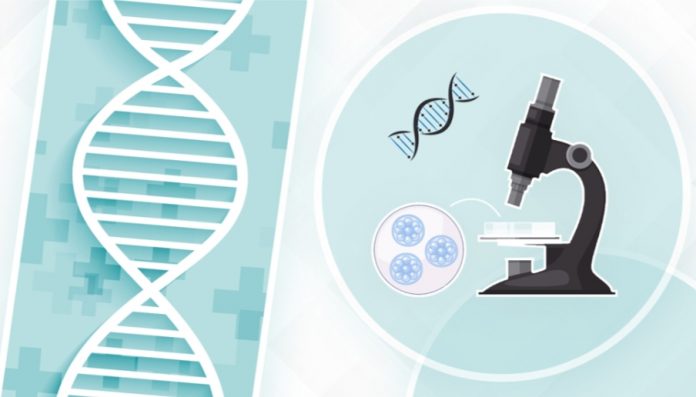No parents want their future children to be at risk due to any health condition. Especially if you or your partner has health issues like Down syndrome, you do not want that to be passed down to your child. So if you are trying to conceive a baby through IVF, you should get PGT done.
In this article, Dr. Hrishikesh Pai discusses the PGT technique.
Table of Contents
What is PGT?
Preimplantation genetic testing (PGT) is a test performed on the embryos created by in vitro fertilization (IVF) to analyze the embryos before transferring them into the woman’s uterus.
The process helps your doctor select the embryos free from a specific genetic condition or chromosome abnormalities before the transfer.
This test allows you to lower the risk of a genetic condition in your future children before conception.
Dr. Hrishikesh Pai is an IVF specialist with over 35 years of experience. He has an IVF centre in Mumbai called Bloom IVF centre. They provide an excellent treatment for PGT and any other IVF-related services.
Who needs it?
Abnormal genetics is one of the biggest causes that an embryo transfer does not result in pregnancy, says Dr. Pai.
- If you are a woman over the age of 37
- If you have had recurrent miscarriages
- If you have failed two or more IVF cycles
- If you are at risk of having children that could be affected by a genetic disease that is inherited
Types
According to Dr. Pai from one of the best IVF centres in Mumbai, Bloom IVF Centre, there are 3 types of PGT processes:
1. PGT-A (Aneuploidy)
This test is used to check for missing or extra chromosomes. The health conditions that can occur due to an abnormal number of chromosomes could be Down syndrome, Turner syndrome, etc.
These conditions are not caused due to inheritance but because of some characteristics of a woman’s eggs.
Aneuploid embryos increase the likelihood of miscarriage and IVF failure, making detection of this kind even more critical.
2. PGT – M (Monogenic)
This test is used to check single-gene mutations to avoid the inherited conditions passing down to the embryo.
A single faulty gene causes these anomalies in the DNA, which can result in both deadly and nonfatal disorders.
This test is beneficial in detecting illnesses such as cancer predisposition genes, Alzheimer’s disease, and Huntington’s disease at an early stage.
3. PGT – SR (Structural Rearrangements)
This test is used to check for any disarrangement in the embryo chromosomes. Wolf-Hirschhorn, WAGR, and other syndromes caused by structural anomalies are common.
Read Also : 7 Methods of Treatment for Breast Cancer – Dr. Garvit Chitkara
Procedure
- If you plan on getting PGT, an IVF cycle will be required to extract eggs and develop embryos.
- The embryos are observed in our laboratory until they are referred to as blastocysts on day 5 or 6 following fertilization.
- In this process, 3 to 4 cells are taken out of the blastocysts after a biopsy and are sent to perform genetic analysis. A blastocyst generally contains 100 to 150 cells.
- After this, the blastocysts are frozen after the biopsy. The results of this test take a month or two to come back.
- If the results come back and nothing is wrong with the embryo, this normal embryo is transferred into the uterus.
- Generally, only one embryo is transferred to avoid the chances of multiple births and to avoid the risk of miscarriages.
- The embryos that are remaining are frozen for future use.
- By using this method, people who have genetic disorders can also have regular and healthy babies.
This treatment is available at one of the best IVF centres in India, Bloom IVF centre.
Advantages
According to Dr. Pai, the following are the advantages of PGT:
- PGT helps you recognize if there are any genetic disorders present in the embryo that could affect your future child
- It reduces the risk of miscarriages
- It can also increase pregnancy chances in couples facing issues like advanced age, recurrent miscarriages, and repeated IVF failures.
- Reduces the risk of multiple births
- It can test for more than 300 genetic diseases.
Risks
The risks associated with PGT are:
- No studies show that babies born after performing PGT testing have any risks other than normal health risks associated with IVF birth.
- The risks could be present in handling the embryo, freezing, biopsy, etc. PGT damages around 5% of embryos with such damage.
- PGT could not always be accurate. There are chances that the PGT will not be 100% correct. So it becomes essential to go under regular prenatal testing when pregnant.
Conclusion:
PGT can help you avoid passing down the hereditary diseases you have to your children. It is essential to get PGT done if you have any disorders that could harm your future children.
You can get more information about PGT by visiting Dr. Hrishikesh Pai’s IVF centre in Mumbai, Bloom IVF Centre.


















